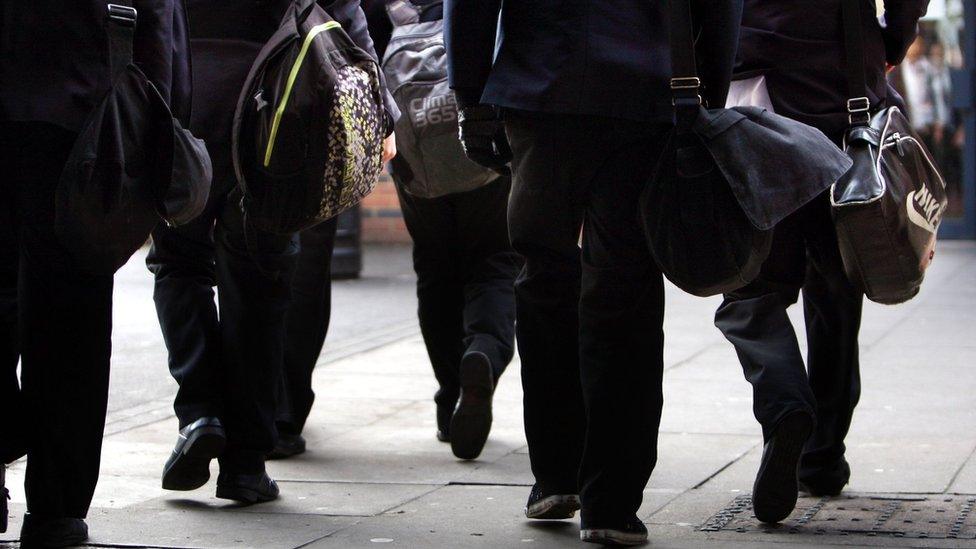Education bursary 'gives you that incentive to go on'
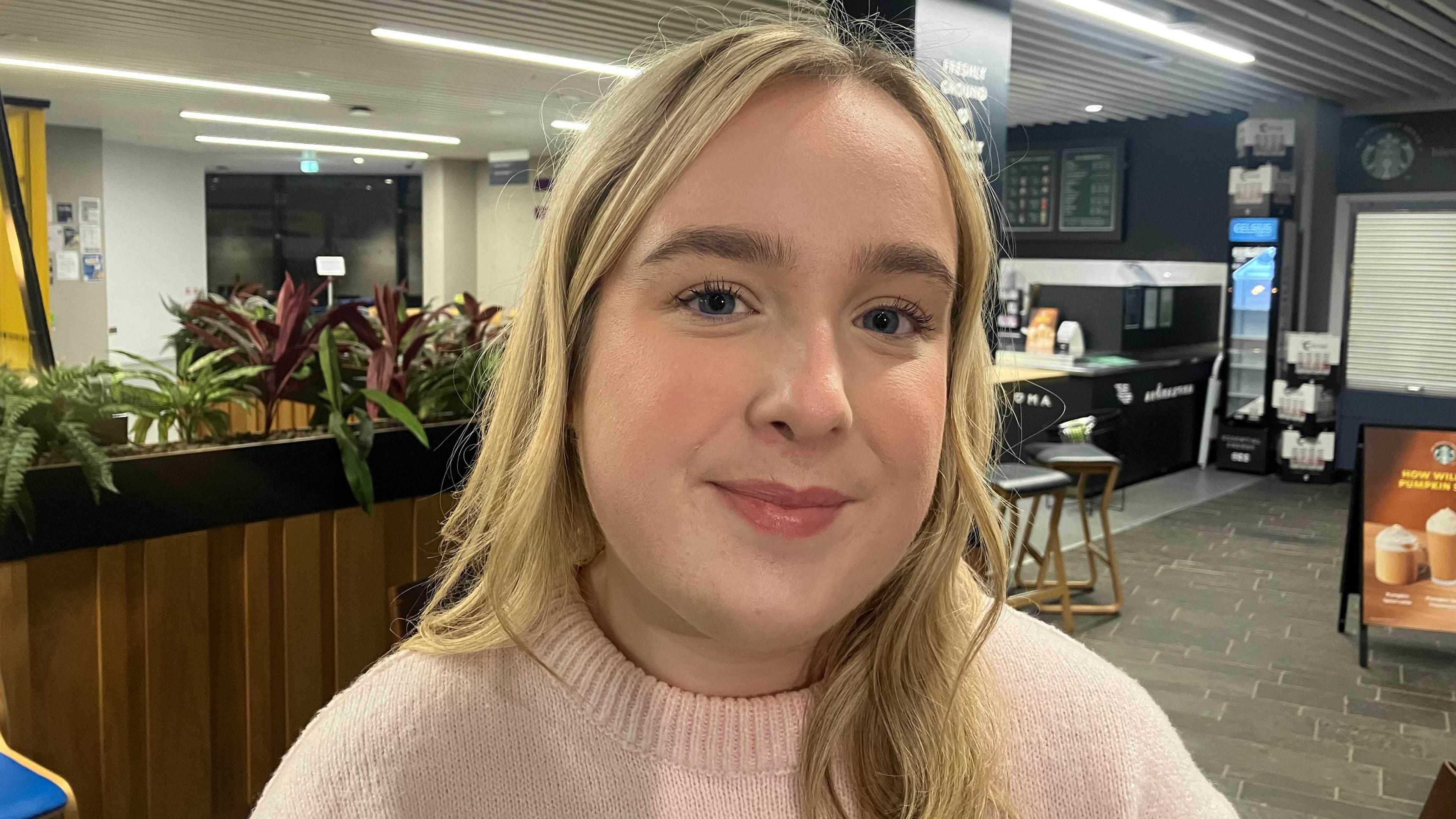
Kiera Pollock says there's a stigma that if you're "from working class areas then you don't do well"
- Published
Nineteen-year-old Kiera Pollock from Belfast's Shankill Road is getting support from a famous woman from the area to continue her education.
"I live in an interface so it's a stigma that a lot of people wouldn't go to university or they would drop out of school young," she told BBC News NI.
Ms Pollock is studying to be a youth worker and is one of the recipients of a bursary named after the late Baroness May Blood.
The Baroness May Blood Educational Bursaries, organised by the Argyle Business Centre and supported by other businesses and organisations on the Shankill, were established in her memory.
Jack McCullough says "we shouldn't be held back because of our financial upbringing"
They provide financial support to young people from the area to continue in education.
Several reports have highlighted how much harder it can be for young people from relatively deprived areas to succeed in education.
Ms Pollock, from the Shankill, has started studying to be a youth worker at Ulster University (UU) and she said that getting additional financial support was crucial.
"It gives you that incentive to go on and go to university," she said.
"So getting that money it might boost people to go to university."
Ms Pollock said that there was a "stigma that if you're from these kind of communities and you're from working class areas then you don't do well".
She said that youth workers in her area had helped her "come out of my shell".
"I was quite a shy, quiet girl when I was growing up and youth work services really opened my mind to what I could do," she said.
"I want to do the same in my career."
How much are the Baroness May Blood bursaries worth?
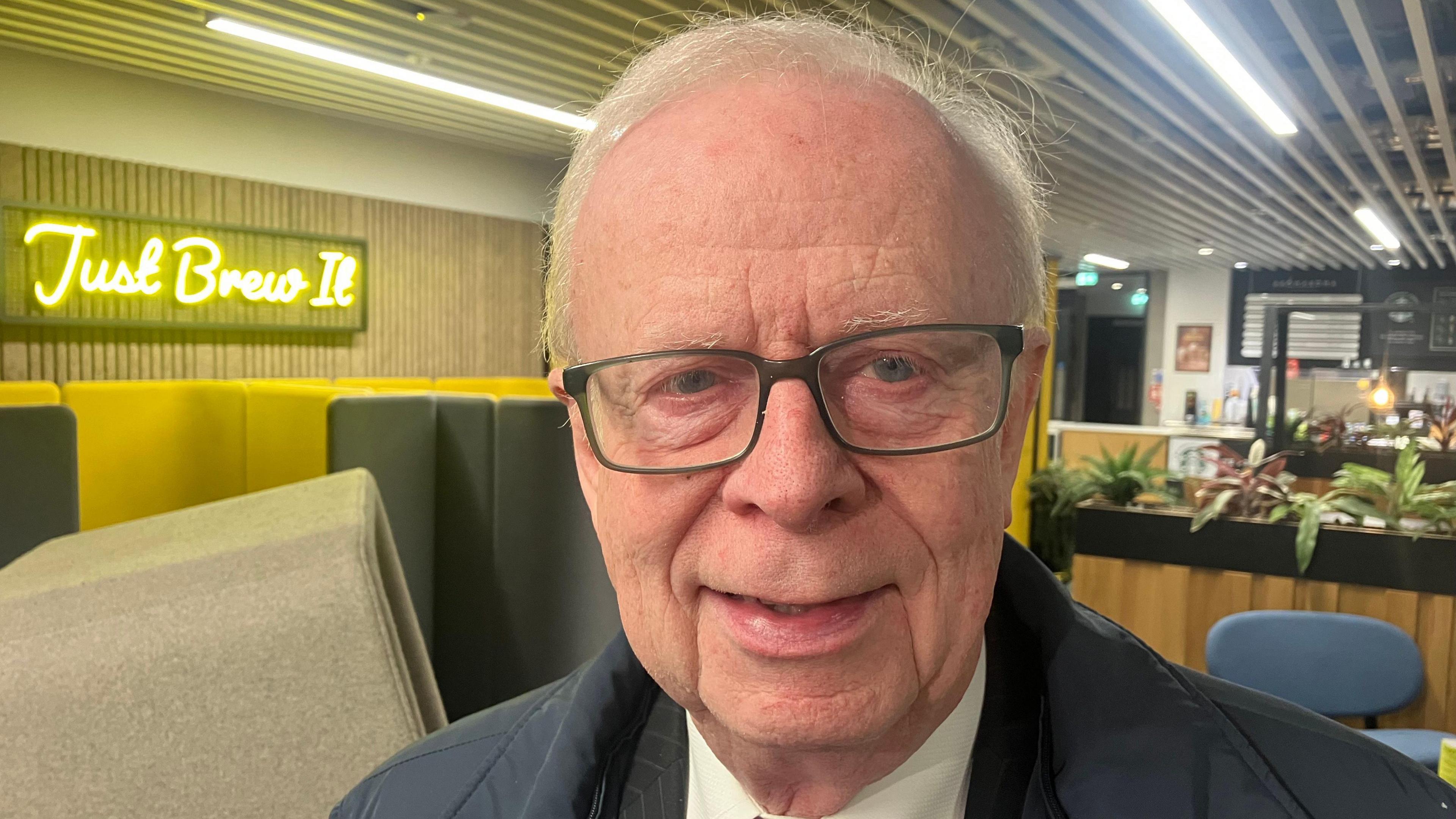
Sir Reg says "a lot of people are put off going into further and higher education because of the cost"
According to Sir Reg Empey, who is a director of the Argyle Business Centre, the bursary scheme was the best way to mark Baroness Blood's legacy.
And it is a community effort.
"As Argyle Business Centre, we have put money in but other people in the community, businesses and others, have put money in as well," he said.
Young people must be continuing in further or higher education after leaving school to qualify.
If they are in full-time education they get £1000, and if they are in part-time education they get £500.
"A lot of people are put off going into further and higher education because of the cost," Sir Reg said.
"So this is an attempt to address that."
"This is a small attempt to give young people an opportunity to get a foot on the ladder and make sure that they can achieve a meaningful and worthwhile job."
Who else was getting a bursary?
Jack McCullough from Ballysillan in Belfast is a former pupil at Belfast Boys' Model and is studying Mechanical Engineering at Queen's University of Belfast.
"For my course specifically it requires a really robust laptop that can run specific computing software," he said.
"This money will really help me buy that.
"We have potential too and we shouldn't be held back because of our financial upbringing.
"Other people, they have advantages that I don't but this bursary helps with that."
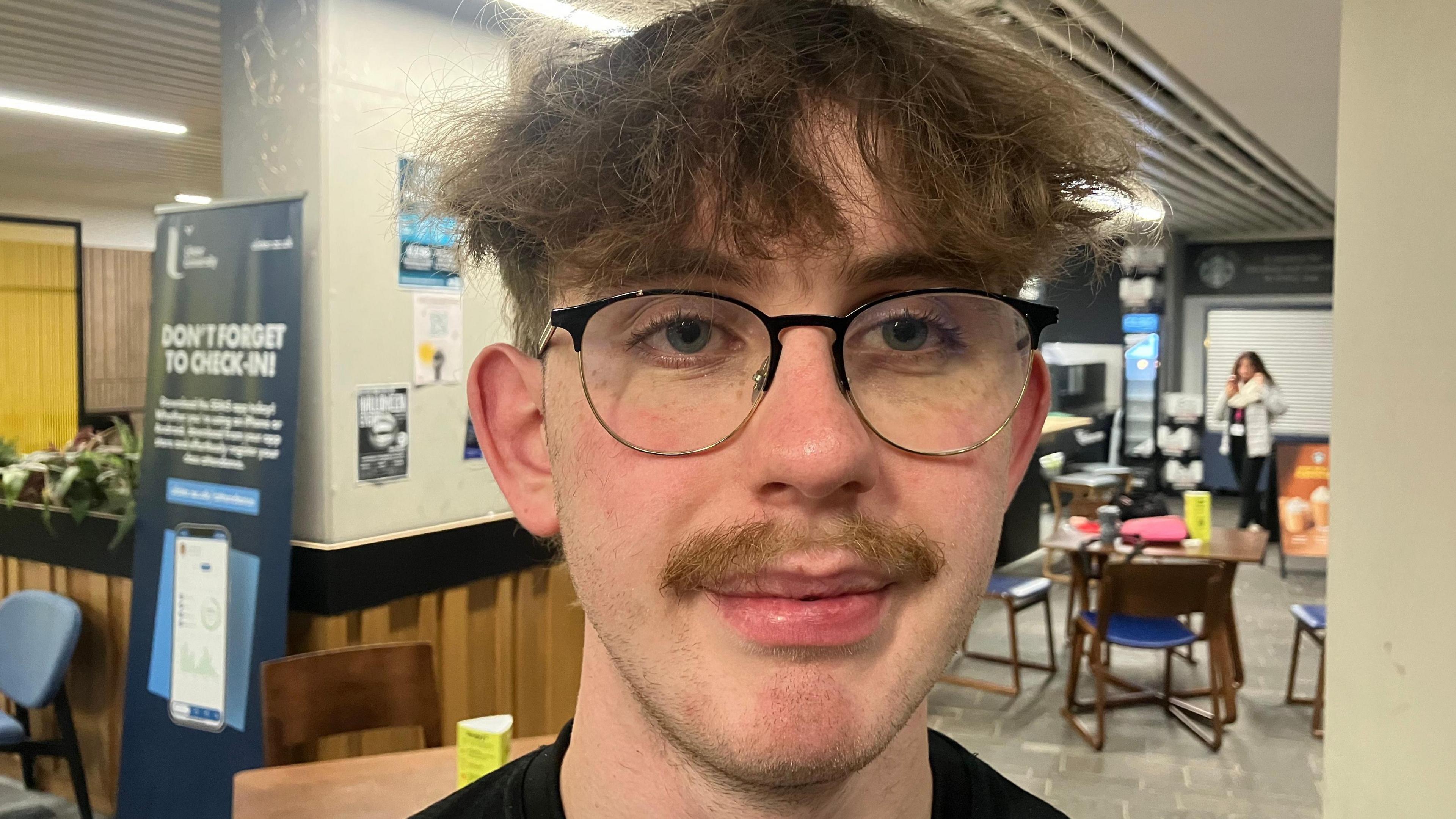
James Hunter says "I would like to be the voice for people to raise their concerns"
James Hunter is also from Ballysillan and is also a former pupil at Belfast Boys' Model.
He has also started university, and has a long-term ambition to go into politics.
"I feel like there's a lot of stuff that needs to be changed," he said.
"I would like to be the voice for people to raise their concerns, and to sort of bring that higher up and hopefully make a change someday."
Mr Hunter said that better facilities for areas like Ballysillan were needed.
"I feel like there needs to be a little bit more investment in the community," he said.
In all, almost 30 young people from the greater Shankill area were awarded a bursary at a ceremony at Ulster University's Belfast campus.
Who was Baroness May Blood?
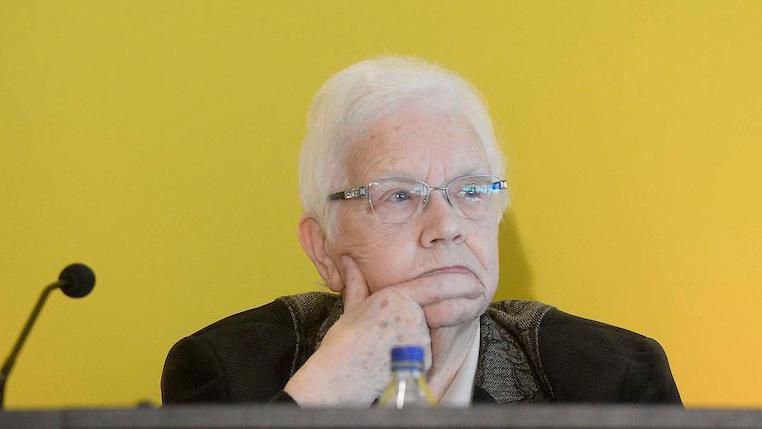
Sir Reg says Baroness Blood "had been a lifelong campaigner for improving the education of working-class people in the west of the city"
Born in 1938, May Blood began work aged 14 in the Blackstaff Linen Mill on the Springfield Road in west Belfast.
After the closure of the mill, she ran a training project for long-term unemployed men in the Shankill Road area and from 1993 to 1999 worked for the Greater Shankill Partnership.
In 1999, she became the first woman in Northern Ireland to be given a life peerage, taking the title Baroness Blood of Blackwatertown.
In the 1990s she was one of the founders of the Northern Ireland Women's Coalition.
She campaigned for and supported integrated education in Northern Ireland, and was a founding director of Argyle Business Centre on the Shankill Road.
Baroness Blood died in 2022, aged 84.
"She had been a lifelong campaigner for improving the education of working-class people in the west of the city," Sir Reg Empey said.
Related topics
- Published28 July 2020
